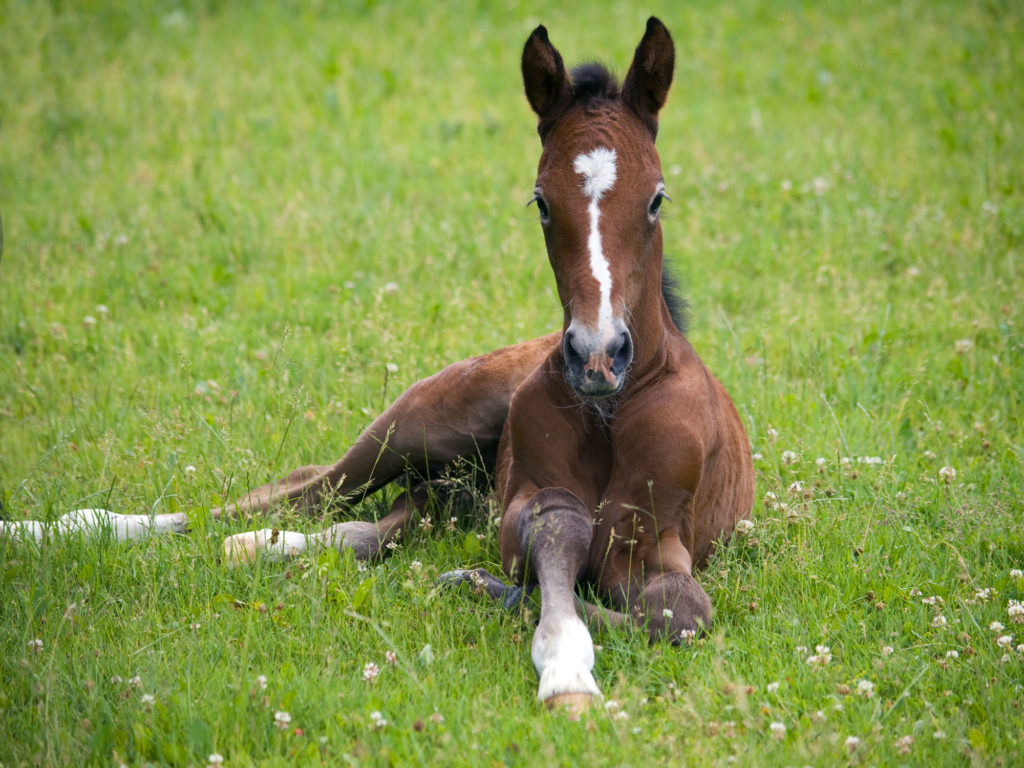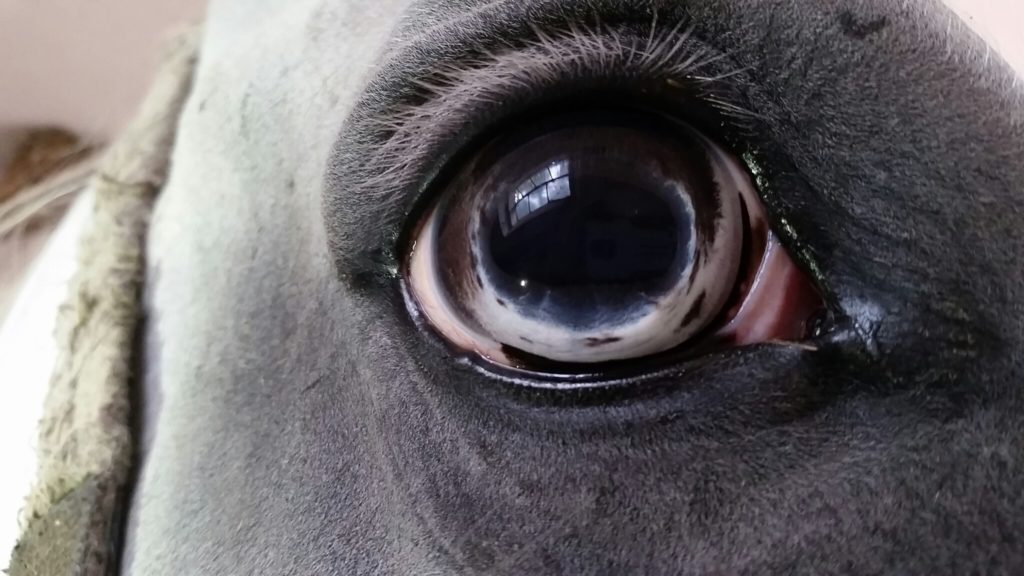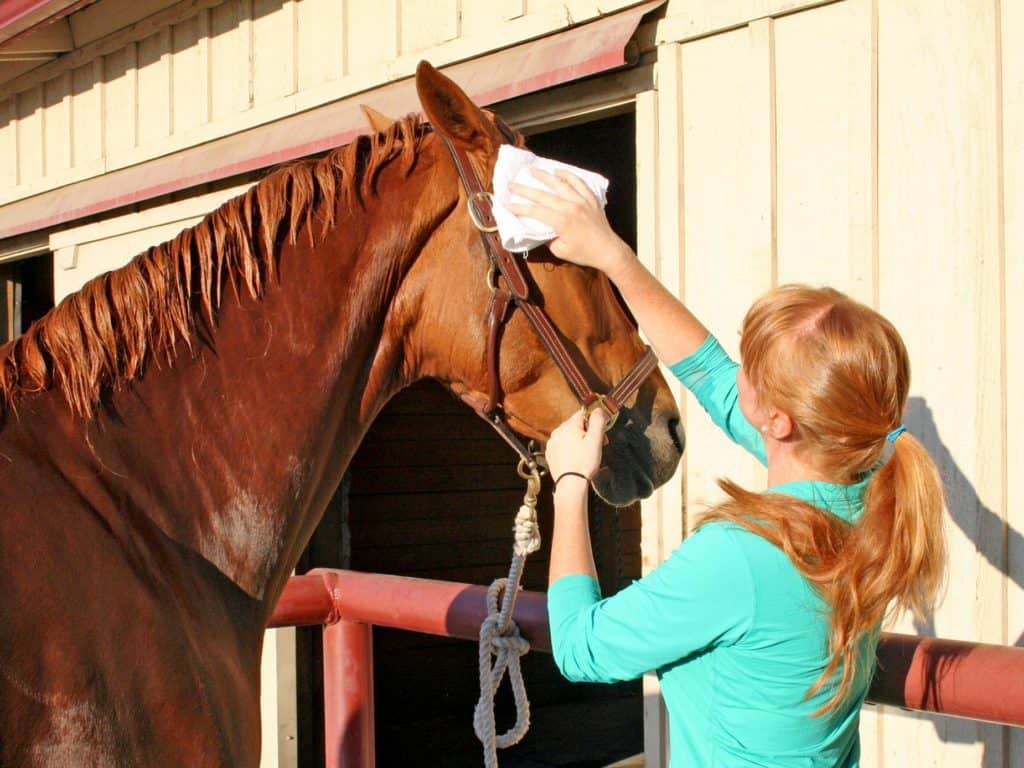
Basic Equine Eye Anatomy
If you know how the equine eye works, you’ll understand why injury affecting any part of its structure can create significant pain and severely affect vision.

If you know how the equine eye works, you’ll understand why injury affecting any part of its structure can create significant pain and severely affect vision.

If you have ever dealt with an equine eye problem, you know the importance of early recognition and appropriate treatment. Here are some common conditions and how your veterinarian might manage them.

Standing surgeries on sedated horses can provide good, if not better, results than equivalent surgeries on fully anesthetized horses, without the added costs and complications.

As horses get older, they face common age-related conditions and diseases that require management and care. Learn more about those conditions and diseases in this slideshow.

Being prepared for an equine emergency can help make the situation less stressful and result in a more positive outcome.

Find out what items should be in your horse’s first-aid kit, what they’re used for, and how to store them.

Veterinarians successfully used a treatment option from human medicine to reduce squamous cell carcinomas in horses’ eyes.

Two leading genetics researchers described current and upcoming tests for a variety of heritable equine conditions.

Find out what behaviors and signs to watch for that suggest visual impairment, and learn how to help horses deal with deteriorating eyesight and blindness.

Here’s how to manage senior horses’ aging teeth, joints, lungs, and more.

Horses of some breeds with limited gene pools are at risk of developing health issues due to inbreeding. But researchers found that this isn’t the case when it comes to eye problems in a 400-year-old Czech breed, researchers say.

Researchers found that the only factor associated with a decreased risk of squamous cell carcinoma (or SCC, the most common ocular tumor in horses) recurrence was use of a fly mask with 90% or more UV light protection.

Belgian horses with two copies of the DDB2 genetic variant are four times more likely to develop ocular squamous cell carcinoma (SCC) than those with one or no copies, researchers found.

When riding your horse in the woods or the wilderness, things can go wrong–and usually when least expected. Here are some possible predicaments you might face while out on the trail.

Here are four crucial areas to include in your horse grooming routine.

Dr. Liz Arbittier encourages owners and caretakers of senior horses to call their vet if they notice any changes in health or behavior, even when it seems minor, to identify issues and begin treatment early. Here’s what to watch for.
Stay on top of the most recent Horse Health news with
"*" indicates required fields